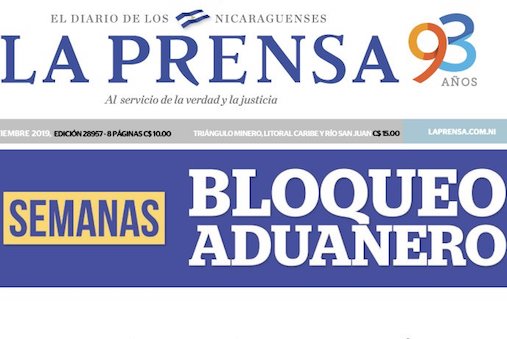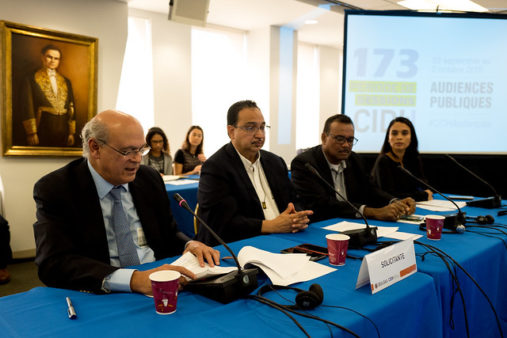Two years ago this week, a police raid on a media research center in Managua run by journalist Carlos Fernando Chamorro prompted international concern that President Daniel Ortega’s government was persecuting his critics—such as Chamorro—and violating press freedom.
Ana L. Urbina, a correspondent for channels 8 and 11, and five members of the Red Cross died when the ambulance and truck they were traveling in was swept away by the rain-swollen Tecolostote River in central Nicaragua, Boaco Department, El Nuevo Diario reports. (See EFE's report in English.)
In the middle of August, the newspaper La Prensa in Nicaragua said it was firing 23 delivery workers, but the Labor Ministry ordered their rehiring, which according to the newspaper — a strong opponent of President Daniel Ortega— is part of a “political persecution” trying to restrict freedoms of press and opinion.
Renowned journalist Carlos Fernando Chamorro is among the winners of the 2010 Maria Moors Cabot Prize. The annual award recognizes excellence in coverage of Latin American and Carribean issues and is organized by the Journalism School at Columbia University.
Don’t expect relations between Hugo Chávez and the U.S. media to improve in 2010. Venezuela’s government long ago declared war on “media terrorism,” its term for news organizations that criticize Chávez from within and outside the country. Chávez recently slammed the U.S. magazine Newsweek for its predictions that in 2010 Chávez faces another coup and that his mentor Fidel Castro will die this year in Cuba.

Nearly seventeen months after protests first broke out in Nicaragua, independent journalists in the country and international press advocates are repeating calls to protect media workers and freedom of expression.
Between December 16 of last year and February 29 of this year, 61 cases of violence against journalists were documented. In all, 53 journalists were victims of violence, some more than once.
Nicaraguan newspaper La Prensa reported that there is a negotiation underway for the release of tons of paper and other materials, held by customs for more than 500 days, according to a note from the editorial board.

Amid the global decline in freedom of expression, Nicaragua is one of the countries that has sustained the greatest damage to freedom of expression, while Cuba “leads in regional race to the bottom” in the Americas.
Lack of access to public information, requests for interviews denied by public officials, control of printing materials, harassment, repression and violence are part of daily life for journalists in Nicaragua. The situation, which journalists have faced for years, began to worsen after the start of protests against the government of Daniel Ortega in April 2018. […]

At a public hearing before the IACHR, journalists from Nicaragua denounced that the precautionary measures granted by that entity have not been complied with by the Nicaraguan State, a situation that places them at further risk

The board of directors of newspaper El Nuevo Diario reported that it decided to discontinue its digital and print publication due to economic, technical and logistical difficulties that make its operation "unsustainable" after four decades of circulation.